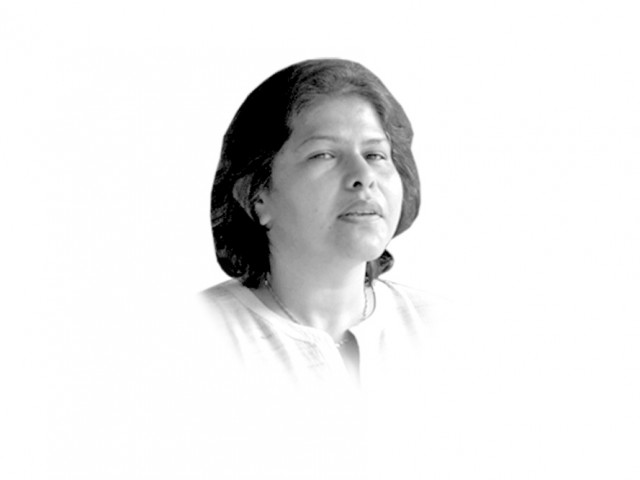The media at risk
It's about time that the media fixed problems of professionalism to thwart the threat from the agencies.

For the spooks, all journalists (they include columnists as well) are purchasable. Others that don’t take the bait are punished or even killed. This is normal in a militarised society like ours where mullahs, teachers, university professors, journalists, gigolos and prostitutes are placed in the same social category as far as their value is concerned. The individual worth, in turn, depends on power and money.
In any case, the central control of information by the state and the manipulation of the state by the establishment means ambitious journalists have to partner with or come in contact with intelligence agencies and other power centres. Traditionally, the media-establishment relationship was more pronounced in the case of the Urdu press which had to be kept on a tight leash due to its larger access. The English media continued to be fairly liberal as it was a medium for the inner debates of the establishment. A lot of lobbying within the establishment is done through the English media. Later, it was used for showcasing a liberal and free Pakistan.
This began to change after Zia’s martial law. The generation of journalists produced during the 1980s and 1990s was different from the pre-1980s generation which had suffered the military dictator’s wrath. The post-1980s, on the other hand, was more close-minded.
The Musharraf period made things even worse due to the establishment’s realisation regarding the significance of media for controlling society and marketing a particular narrative. The establishment and its agencies began encouraging and nurturing journalists who were presentable and had a good command of the English language. The engagement took several forms starting from plain bribery to intellectual and emotional engagement. With the expansion of the electronic media, the benefits of collaboration became greater. This is not to argue that the state is always wrong but a professional journalist must always be mindful of stating the story rather than tweaking and twisting the story. Moreover, a professional journalist must never become part of the story. Switch from one channel to the other and one can feel the dearth of professional journalists who know the art of telling a story without becoming a part of it. Any discomfort is shunned aside by citing the example of Fox News and CNN.
The problem of collaborators is also due to the dearth of trained journalists. According to a study of Pakistan’s media by Adnan Rehmat of Intermedia, the average age of Pakistani journalists is 22 years. Add to this the problem of those individuals whose basic training is not in media. Currently, there are three kinds of journalists: (a) the small-time operators who have no option but to partner with the intelligence agencies. These are used for several purposes including scaring off and delivering tough warnings to writers and other journalists, (b) the big fish who partner with the agencies due to ideological reasons and because they are part of the upper-middle class with a natural affinity for the establishment, and (c) the very big fish who are part of the establishment. The English press remains relatively more sophisticated than the Urdu press so it becomes difficult to detect the collaborators with the naked eye.
This means that there is little difference between less or more credible newspapers as almost all allow ‘planted journalists’ or allow the use of their space, often the front-page, to publish stories manufactured elsewhere.
The media owners are happy, as they can’t be bothered with investing in the professional growth of their employees. They are quite happy letting their reporters or star employees hitch a ride on domestic or foreign military helicopters to trouble spots. It's about time that the media fixed problems of professionalism to thwart the threat from the agencies.
Published in The Express Tribune, September 19th, 2010.












1724319076-0/Untitled-design-(5)1724319076-0-208x130.webp)


COMMENTS
Comments are moderated and generally will be posted if they are on-topic and not abusive.
For more information, please see our Comments FAQ